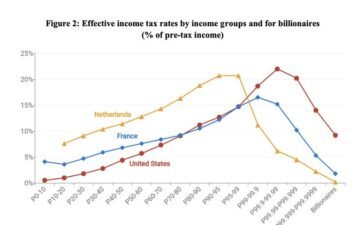Quanta Magazine has a good piece on a 17-year-old student who disproved a long-standing conjecture in harmonic analysis:
Yet a paper posted on February 10(opens a new tab) left the math world by turns stunned, delighted and ready to welcome a bold new talent into its midst. Its author was Hannah Cairo(opens a new tab), just 17 at the time. She had solved a 40-year-old mystery about how functions behave, called the Mizohata-Takeuchi conjecture.
“We were all shocked, absolutely. I don’t remember ever seeing anything like that,” said Itamar Oliveira (opens aof the University of Birmingham, who has spent the past two years trying to prove that the conjecture was true. In her paper, Cairo showed that it’s false. The result defies mathematicians’ usual intuitions about what functions can and cannot do.
…The proof, and its unlikely author, have energized the math community since Cairo posted it in February. “I was absolutely, ‘Wow.’ This has been my favorite problem for nigh on 40 years, and I was completely blown away,” Carbery said.
Here is the abstract to the paper:

I can’t speak to the mathematics but this is Quanta Magazine not People Magazine and Cairo is not coming out of nowhere. As the article discusses, she has been taking graduate classes in mathematics at Berkeley from people like Ruixiang Zhang. So what is the problem?
I was enraged by the following:
After completing the proof, she decided to apply straight to graduate school, skipping college (and a high school diploma) altogether. As she saw it, she was already living the life of a graduate student. Cairo applied to 10 graduate programs. Six rejected her because she didn’t have a college degree. Two admitted her, but then higher-ups in those universities’ administrations overrode those decisions.
Only the University of Maryland and Johns Hopkins University were willing to welcome her straight into a doctoral program.
Kudos to UMD and JHU! But what is going on at those other universities?!! Their sole mission is to identify and nurture talent. They have armies of admissions staff and tout their “holistic” approach to recognizing creativity and intellectual promise even when it follows an unconventional path. Yet they can’t make room for a genius who has been vetted by some of the top mathematicians in the world? This is institutional failure.
We saw similar failures during COVID: researchers at Yale’s School of Public Health, working on new tests, couldn’t get funding from their own billion-dollar institution and would have stalled without Tyler’s Fast Grants. But the problem isn’t just speed. Emergent Ventures isn’t about speed but about discovering talent. If you wonder why EV has been so successful look to Tyler and people like Shruti Rajagopalan and to the noble funders but look also to the fact that their competitors are so bureaucratic that they can’t recognize talent even when it is thrust upon them.
It’s a very good thing EV exists. But you know your city is broken when you need Batman to fight crime. EV will have truly succeeded when the rest of the system is inspired into raising its game.
The post Genius, Rejected: Emergent Ventures Versus the System appeared first on Marginal REVOLUTION.
You Might Also Like
That Was Then/This is Now
Hat tip: Logan Dobson. The post That Was Then/This is Now appeared first on Marginal REVOLUTION. Source link...
Effective tax rates for billionaires
Here is the tweet, here is the source data. The post Effective tax rates for billionaires appeared first on Marginal...
*You Have No Right to Your Culture: Essays on the Human Condition*
By Bryan Caplan, now on sale. From Bryan’s Substack: My latest book of essays, You Have No Right to Your Culture:...
History of Econ Summer Camp
Graduate students with an interest in the history of economic thought should consider this summer program. Source link...









